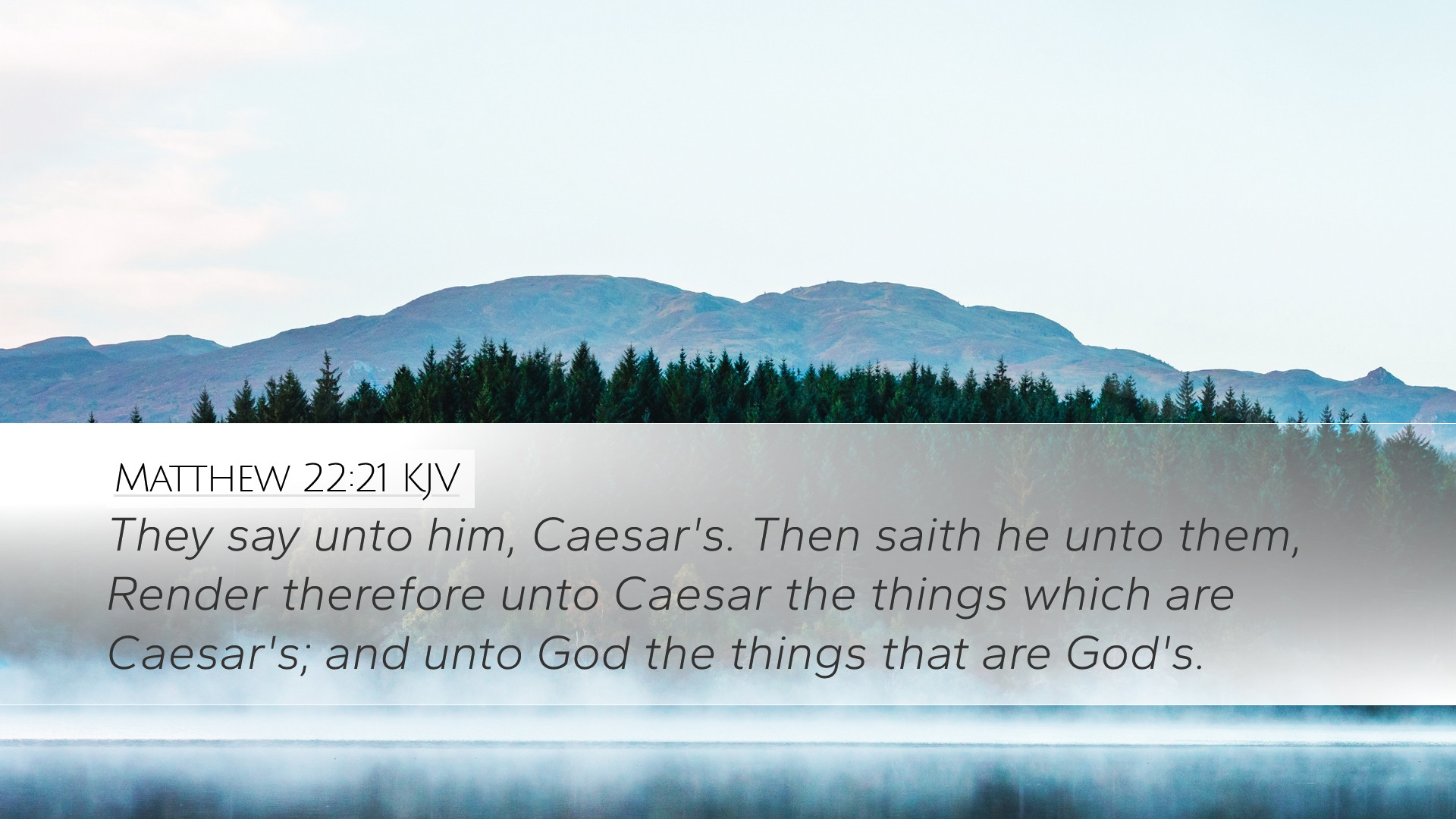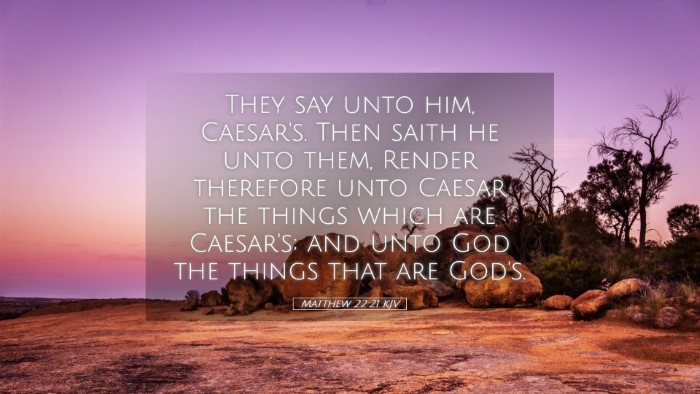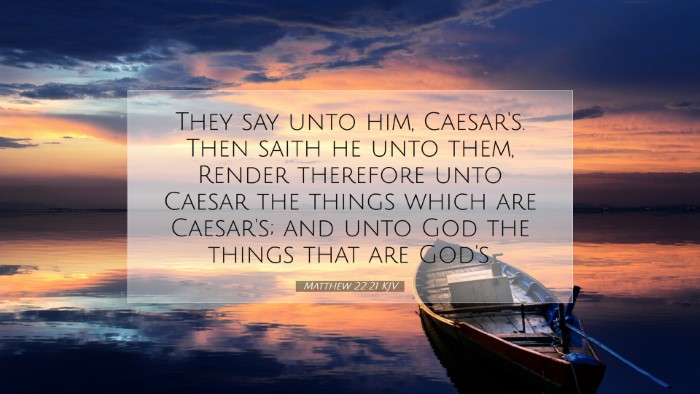Commentary on Matthew 22:21
Bible Verse: Matthew 22:21 - "They said unto him, Caesar's. Then saith he unto them, Render therefore unto Caesar the things which are Caesar's; and unto God the things that are God's."
Contextual Analysis
The passage in Matthew 22:21 comes within the larger context of Jesus' ministry, where He had been engaged in a series of confrontations with the religious leaders of His day. In this particular instance, the Pharisees conspired to entrap Jesus with a question concerning the lawfulness of paying taxes to Caesar. This was a contentious issue among the Jews, who resented Roman rule.
Insights from Commentary
1. Matthew Henry's Commentary
Matthew Henry emphasizes that this interaction showcases the wisdom and authority of Jesus. He notes that the question posed to Jesus was designed to trap Him, regardless of how He answered. If He said to pay the tax, He would risk alienating the Jewish populace who despised the Roman oppression. If He advised against it, He could be accused of rebellion.
Henry further explains that Jesus' response is masterful; He does not directly answer the political question but instead redirects it to a higher principle of allegiance. The phrase "Render therefore unto Caesar the things which are Caesar's" reflects the duty to honor earthly authorities while simultaneously affirming the superior claim of God over all aspects of life.
2. Albert Barnes' Notes
Albert Barnes provides a thorough interpretation of this verse, suggesting that Jesus acknowledges the legitimacy of civil government. He states, "The property of the earth was given; and hence it is right to pay tribute." Barnes elucidates that the phrase emphasizes the distinction between civil obligations and spiritual duties. He remarks that slave and master relationships, physical possessions, and civic responsibilities should be acknowledged, but these must never eclipse our obligations to God.
Moreover, Barnes highlights the profound implications of Jesus’ statement that one must also "render unto God the things that are God's." This call to give to God implies a totality that encompasses our lives—our time, our talents, our treasure. It stresses that while we live under earthly governance, our ultimate loyalty and devotion belong to God.
3. Adam Clarke's Commentary
Adam Clarke offers a deep theological reflection on the terms "Caesar" and "God." He indicates that Jesus cleverly avoided the political trap laid by the Pharisees by ingeniously suggesting that one can hold loyalties in both realms. He explains that Jesus, by asking whose image was on the coin, calls attention to the idea of ownership and authority. If the coin bears Caesar's image, it rightfully belongs to him, but since humans are made in the image of God, our ultimate allegiance should be to Him.
Clarke also interprets this passage as a commentary on citizenship—Christians are dual citizens of earthly nations and the Kingdom of Heaven. He stresses that while Christians are called to fulfill their earthly duties, they must not compromise their commitments to God. The distinction between the two realms should guide the believer's actions and priorities, and thus should inspire a balanced approach to civil responsibilities and spiritual fidelity.
Theological Implications
This verse raises vital questions regarding the relationship between faith and politics. It acknowledges the necessity of civic duties as believers navigate the complexities of living within a secular society. Understanding Jesus' statement allows for a nuanced discussion concerning the integration of faith into public life.
Practical Applications
- Understanding Authority: Believers are challenged to recognize the legitimacy of their earthly authorities while remaining conscious of a higher authority in God.
- Balanced Lives: The call to render to both Caesar and God implies that Christians are to live balanced lives that honor both their civic responsibilities and their devotion to God.
- Engagement in Society: This verse serves as a foundation for encouraging active citizenship, whereby Christians engage in societal issues, advocate for justice, and embody values that reflect Christ’s teachings.
- Prioritization of God: Ultimately, this passage teaches that while civil duties are critical, they must be properly prioritized in relation to one’s spiritual commitments and relationship with God.
Conclusion
Matthew 22:21 exemplifies the balance every believer must manage: recognition of earthly responsibilities and acknowledgment of divine sovereignty. The commentaries of Matthew Henry, Albert Barnes, and Adam Clarke provide rich insights that illuminate the significance of Jesus’ words, inviting deeper reflection among pastors, theologians, and scholars. As one explores these dimensions, they are called to engage thoughtfully and faithfully in both the spiritual and political realms, rendering to each their due.


